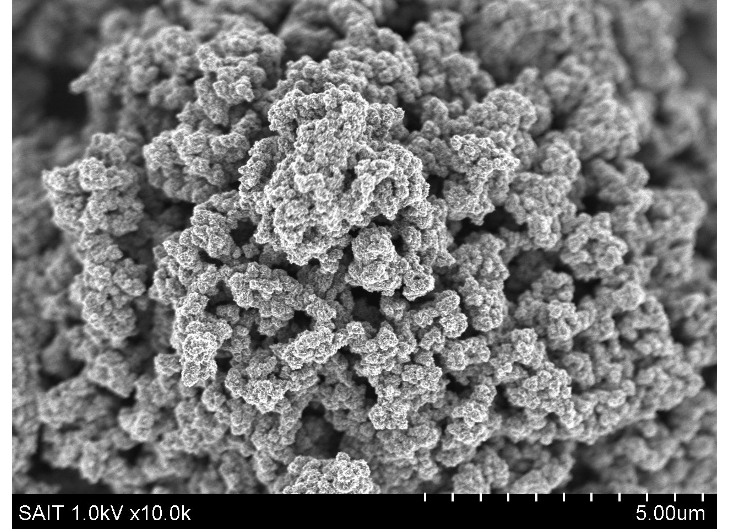latest

Major climate science project wants to use your Android's GPS to improve weather forecasting
As long as they don't call it Skynet
All of our phones contain a number of sensors quietly doing their jobs every day. You might know your phone has GPS, biometric sensors, and magnetometers, but many smartphones also sport barometers to measure air pressure and a small number can even measure ambient air temperature. Now, a worldwide climate science project wants to use sensor data from Android phones linked to satellites to improve weather forecasting for everyone.

Qualcomm expands its chipset monopoly to Mars
The CPU inside the OnePlus One takes flight on the red planet
Anyone who's been following the ins and outs of Android for the last few years will remember the OnePlus One. The teasers and promotions were pretty obnoxious, but the phone itself was great when it launched in 2014. A big part of that was thanks to the Snapdragon 801, which made the OPO faster than any other phone in its price range. This powerful ARM chip popped up in a lot of less influential (and more expensive) devices that same year, and now it's on Mars. The Snapdragon 801 is at the heart of NASA's Ingenuity helicopter, which just made history as the first machine to take flight on another planet.

In what should come as a surprise to no one, it turns out just making your smartphone's screen kind of yellow may not stop it from keeping you awake. In fact, according to a study out of the University of Manchester, that yellow-shifted "night light" is even worse for helping you get to sleep than just leaving your phone in the standard untinted mode.

No one was there to watch the Big Bang happen, but you can catch a replay of all the action with a new app from CERN and Google. The Big Bang AR app turns the world around you into nothing, which then becomes everything. And no, this has nothing to do with that silly TV show.

Social media is often considered a distraction, but based on the results of a recent study, that influence could have larger implications. According to research published in the Journal of the American Medical Association (JAMA), frequent use of digital media, including social media, by adolescents could be associated with ADHD—though the causal direction of that relationship is undetermined.

If there's one major technological limitation that's slowing progress in a number of areas, including smartphones, it's probably batteries. More efficient power delivery in smaller cells would no doubt lead to some interesting advancements, and there are plenty of academics and companies around the world working towards better battery tech. You hear about potential new breakthroughs all the time (taking most with a pinch of salt), but Samsung believes it may have come up with a promising new battery material.

Dead Zebra is the online distributor of those wonderful Android mini collectibles designed by Andrew Bell, but that's not all it sells. There are rugs, pins, and more. Some of it isn't even Android-related. Dead Zebra is rolling out a new series of Android minis today, and there are discounts to be had on everything.

I love science. That has to be pretty obvious from both of my work fields, but there's also more to my passion for science than medicine and technology. My physics professor used to call me "The Brain" because, well, I had a knack for solving the most complicated physics problems he could come up with. I want my kids to have this same love for science and this same curiosity, and I'm glad that the world we're in right now not only encourages this kind of enthusiasm, it also celebrates it and has developed more communities and tools and environments where kids can indulge in their scientific pursuits.

Cosmic Watch is not a watch face, or even a conventional clock app. It's an app that models the Earth, the solar system, and most of the familiar constellations in 3D specifically as they relate to both real time and any point in the past. It's also stunningly beautiful - you don't often see educational apps with such a focus on aesthetic beauty. The screenshots really don't do it justice; check out the video below:

Read update
- IT'S ALIVE! The listings for Android Isaac Newton, Nicola Tesla, and Marie Curie are active on the Dead Zebra store, along with the triple pack. It looks like all of them are in stock as of 7:20 PM Eastern on April 20th.
Dead Zebra's long-running line of themed Android figures is expanding by three next week. The latest figures use the now-iconic shape of the Android mascot, but bear cartoon likenesses of three of the biggest names in scientific history: Sir Isaac Newton, Marie Curie, and Nikola Tesla. They'll go on sale in the Dead Zebra shop starting on Monday, April 20th at 11AM Eastern time (8AM Pacific). Each one will cost $10.

The rumors of Google buying a stake in SpaceX started percolating a few days ago, and now it's official. Google and Fidelity have invested a total of $1 billion in the private space firm, which gives them about 10% share. SpaceX says the new funding will go toward the development of reusable rocket technology and satellite manufacturing.

HTC's Power to Give app, the philanthropic software created by HTC to devote idle processing power to scientific research, has been updated with a refreshed interface and a single sign-on feature to help streamline the process of signing into various projects.

Technology in general and mobile tech in particular is on a rapid march forward, but there's a bottleneck that's holding it back: batteries. For years lithium-ion batteries have been the best option for storing energy pound-for-pound, but they've hit a wall - now we can only get bigger batteries or make our gadgets more efficient. A team of researchers at Stanford University have created what they call the "holy grail" of battery technology, a battery with a stable lithium anode.

Kyocera isn't exactly a big name in modern Android smartphones, but it does make a lot of rugged devices that don't get much press. It's also big in materials science, which is where sapphire comes in. See, it seems like a safe bet that the next iPhone will have a sapphire glass display, and Kyocera happens to know a lot about manufacturing synthetic sapphire for watches and electrical components. So, they're making sapphire screens for smartphones. This is the thing now.

What's the average temperature in Mysore, India in December? That's a rather specific question, and while I don't know why you would need to know this information at a moment's notice (unless you're cheating at trivia), Microsoft's latest Android app is prepared to help with that. The answer, it says, is 22 degrees Celsius. In American, that's a comfortable 72. Need to check out another location? Microsoft's Climatology app can handle that too.

Graphene is an amazing material. How amazing? Graphene is composed of a single layer of carbon atoms joined in a hexagonal lattice – it's incredibly strong, light, highly conductive, and nearly transparent. It has been put forward as the key to advancing everything from flexible displays to semiconductors that can save Moore's Law. For all that promise, graphene is still rare in consumer applications due to the difficulty in producing it. Samsung's Advanced Institute of Technology might have finally found a way around that.

It has been more than 30 years since the late, great Carl Sagan took to the airwaves to talk about how our future as a species depends powerfully on our understanding of the cosmos, which we float in like a mote of dust. The original Cosmos debuted in 1980 and inspired a generation of scientists and science nerds alike. Now the series is back with Neil deGrasse Tyson at the helm, and Fox has released a new companion app for Android that can help you explore the majesty and unbelievable scale of the cosmos while watching the show.

Most games are just about entertainment, but sometimes you can do a little good too. Play to Cure: Genes In Space is a mobile game developed for Cancer Research UK as a way to get people all over the world involved in sorting through real genetic data and help scientists get a handle on the causes of cancer. Also, there are space ships.

It was a close call for the PIP biosensor, which passed its $100,000 Kickstarter goal a few days ago. It finished the last day with just $103,916, but that's good enough to get funded. Backers will get a small sensor with Bluetooth technology that connects to smartphones and purports to read stress levels. The creators hope to create a gamified stress management system with the PIP that runs on Android and iOS.









